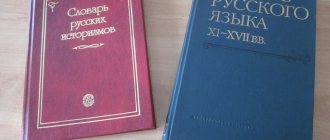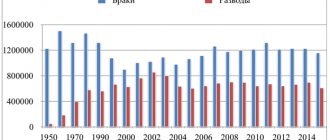Date in 2021: June 6, Sunday.
The birthday of Alexander Sergeevich Pushkin is celebrated in Russia every year. It is dedicated to poetry, the Russian language, and literature. On June 6, fans of creativity come to Tsarskoe Selo (Pushkin), ceremonial events are held in cultural centers of the country, performances are staged, book exhibitions, reading competitions and vernissages are organized. More than 250 million people in the world speak Russian to one degree or another.
| When is it celebrated? | Every year on June 6th. If it falls on Saturday or Sunday, it is a day off |
| When was it founded | Celebrated since 1997. In 2011, a resolution was issued to coincide with the annual anniversary of the birth of Pushkin another memorable date - the international holiday of the Russian language |
| Traditions | Festivals of amateur and professional poetry are held in cities and villages; libraries organize themed evenings dedicated to the works of A. S. Pushkin and other poets. Schools hold ceremonial awards for students who have demonstrated particular success in studying literature and the Russian language. |
Pushkin Day in Russia is an important date for all residents of the country, associated with the birthday of the greatest Russian poet and writer. Pushkin played a huge role in the history of Russian culture, so his birth is always celebrated with great solemnity. Any person familiar with the work of Alexander Sergeevich, both children and adults, can participate in cultural and entertainment events. And if you don’t know someone, then it’s time to get acquainted.
Why is this holiday so important? Because this is the foundation of our culture and history. Knowledge of Pushkin’s work is what helps us identify as representatives of Russian culture.
PSKOV REGION: ALL-RUSSIAN PUSHKIN POETRY HOLIDAY
During a two-day festival at the State Museum-Reserve A.S. Pushkin "Mikhailovskoe" will host new art exhibitions, the opening of two exhibitions, meetings with poets, actors and musicians. Special guests of the holiday will be actor Dmitry Dyuzhev, members of the groups “Surganova and the Orchestra” and “Fathers of Good Sounds”. Also, everyone will be able to read Pushkin’s favorite poem at an open microphone, take part in plein air and Pushkin Quest, and visit a large-scale craft fair.
Read more about the All-Russian Pushkin Poetry Festival.
Congratulations in prose
Let library workers and literature teachers always be inspired by Pushkin’s lines. Let the meeting with the poet’s work give you many wonderful moments!
I would like to wish all residents of Russia a careful attitude towards their native language, love for poetry and creativity! Let reading and writing poetry bring joy to people!
Figure 2. Theatricalization
OREKHOVO-ZUEVO: PUSHKIN HOLIDAY ON PUSHKIN SQUARE
On the poet’s birthday, the House of Culture on Pushkin Square will open several venues where quizzes and costumed photo shoots in the spirit of the 19th century will be held, a bookstore and a crafts fair will open, and folk groups of the city will perform. And children will be able to take part in an exciting quest based on the fabulous works of Pushkin.
Read more about the Pushkin holiday on Pushkin Square.
Why was this date chosen?
It was not by chance that the date June 6 was chosen for the mass celebrations. On this day in 1799, a son, Alexander, was born into the noble family of the Pushkins, Nadezhda Osipovna and Sergei Lvovich, who was destined to become an outstanding Russian writer. The celebration dedicated to the 200th anniversary of the birth of the great poet was held on a special scale. 2021 marks the 220th anniversary.
In 2010, the UN approved June 6 as Russian Language Day. It ranks eighth most common in the world. Russian is known not only by residents of Russia, but also of many other countries. For 147 million, this is their native language, and another 116 million speak it well as a second language.
SURGUT: PUSHKIN DAY OF RUSSIA IN THE CENTRAL CITY LIBRARY NAMED AFTER A.S. PUSHKIN
On Pushkin Day, the Central City Library named after. A.S. Pushkin organizes a special exhibition, virtual tours to the Lyceum Museum of the All-Russian Museum of A.S. Pushkin in St. Petersburg, master classes, quizzes, performances and film screenings from the Cinema Gallery. On the square near the library there will be street celebrations and performances by children's groups of the City Cultural Center.
Read more about Pushkin Day in Russia in the Central City Library named after. A.S. Pushkin.
Russian Language Day
Russia[en] is famous for its sights. But the main one is not the historical and architectural monuments, but the unusually beautiful nature and the original culture of the multinational population. This status belongs to the Russian language. The value of the “great and mighty” lies in its richness and linguistic diversity, in the presence of words and expressions that have no analogues in any other language on the planet.
History of the holiday June 6 - Russian Language Day
The unofficial existence of Russian Language Day began in 1996. On June 6, on the birthday of the great poet A.S. Pushkin, the Russian community of Crimea began to celebrate the Day of Protection of the Russian Language. After 11 years, this organization initiated the accompaniment of the holiday with the opening of the International Festival of Russian, Slavic Culture called “THE GREAT RUSSIAN WORD”.
The idea of establishing at the official level an all-Russian and even world date dedicated to the Russian language was first proposed by Ivan Klimenko, the author of the Russian Word Play. This person wrote an article that was subsequently published on the pages of the Parliamentary Gazette on December 26, 2007 and appeared under the heading “Let there be a Day!” Ivan Klimenko explained his initiative by the fact that the Russian language needs further development, and this is much easier to arrange if every year is marked by an appropriate cultural holiday. But then none of the government representatives responded to the enthusiast’s idea and arguments.
Three years later, Klimenko’s initiative was supported by the UN. As part of the program for the support and development of multilingualism and cultural diversity, the decision to hold Russian Language Day on June 6 was made by the UN Department of Public Information on the eve of International Mother Language Day, celebrated annually on February 21 at the initiative of UNESCO.
The Russian authorities responded to this event only a year later: in 2011, Russian President Dmitry Anatolyevich Medvedev signed the corresponding Decree “On Russian Language Day.” It stated the following: “Establish Russian Language Day and celebrate it annually, June 6, on the birthday of the great Russian poet, founder of the modern Russian literary language A.S. Pushkin.” This decree came into force at the time of signing the order, that is, June 6, 2011. The memorable date was established “in order to preserve, support and develop the Russian language as the national heritage of the peoples of the Russian Federation, a means of international communication and an integral part of the cultural and spiritual heritage of world civilization.
In addition to Russian Language Day, the list of holidays compiled by the UN also includes dates designed to pay an annual tribute to other official languages of the world.
For example, on April 23, William Shakespeare's birthday, the public celebrates English Language Day; March 20, International Francophonie Day - French Language Day; April 20, the Day of Remembrance of the founder of Chinese writing, Cang Jie, is Chinese Language Day. On such days, various thematic events are organized in the countries that are the cradles of a particular language. These include concerts with performances by folk ensembles, literary exhibitions, quizzes, competitions, seminars and lectures, screenings of films about the history of writing, culinary events with the preparation and tasting of national cuisine. Express language lessons are timed to coincide with such specific dates. They provide the opportunity and desire for polyglots to learn another official language of the United Nations.
Curious facts about the “great and mighty” Russian language
1. Russian is one of the largest languages in the world and the most difficult after Chinese to learn and in terms of pronunciation. Among the Slavic languages, “great and mighty” has become most widespread, which Russians can be proud of. It is one of the six official languages of the UN.
2. The Russian language seems incredibly difficult to foreigners. The fact is that it is characterized by the presence of a number of specific features that determine individuality. Russian is an inflectional language: it contains inflections, that is, parts of a word that contain grammatical meanings manifested as a result of declension.
3. The Russian language is also called a synthetic language. Reason: each word combines two meanings at once - grammatical and lexical. The main principle of Russian orthography is the transmission of significant parts of words using letters. Linguists also call it phonomorphological. These are just some of the distinctive features of the Russian language from a scientific point of view, making it unlike others.
4. According to statistics, currently 144 million people consider “the great and mighty” to be their native language. Thus, Russian is spoken in 33 countries of the world and up to 300 million people. In terms of prevalence on the planet, it has been overtaken by English, Chinese, Hindi, Urdu, Spanish and Arabic, providing the opportunity to take an honorable sixth place in this ranking.
5. The largest number of earthly inhabitants who speak Russian perfectly is characteristic of the fraternal Slavic states[en], namely Ukraine[en] and Belarus. The same applies to the former Soviet republics: Kazakhstan and Uzbekistan. There are also many Russian-speaking people abroad. Most often they can be found in the USA[en], Germany, Bulgaria and Eastern European countries: Poland and the Czech Republic. In terms of the total number of speakers of Russian, it ranks fifth in the world among all existing languages, and in terms of the number of people who speak “the great and mighty” as a native language, it ranks eighth.
6. Do you know why the Russian language is called “Russian”? After all, the indicated linguonym correlates with the toponym and ethnonym “Rus”, which is of quite a respectable age. The modern name appeared due to historical changes. Until then, there were other designations for our native language: “Russian”, “Great Russian”. The first arose in the 17th century and was especially popular three centuries ago. The archaization of the linguonym occurred already in the first half of the 19th century. Mikhail Vasilyevich Lomonosov spoke the “Russian” language[en]. The second designation was the result of the existing opposition between Little, White and Great Rus'. Its use was aimed at emphasizing the dialect speech of the Great Russians.
Now you know about the language in which you communicate with others every day, in which you think and dream more than before. Let this information help you realize the importance of the Russian language as an object of cultural heritage and make your own speech clearer, more pleasant and understandable. Don’t forget to congratulate all your Russian-speaking relatives and friends on June 6th: they too should feel proud of one of the best languages in the world!
Pushkin's birthday
It was on this day - June 6 (May 26, old style) 1799 in Moscow, in the family of a poor nobleman, a descendant of an old boyar family, that Sasha Pushkin was born (February 10 (January 29, old style) 1837 in St. Petersburg).
Alexander Sergeevich Pushkin is a great poet, a master of the art of words. Anna Andreevna Akhmatova said about Pushkin: “Pushkin’s poems gave children the Russian language in its most perfect splendor, a language that they may never hear again and which they will never speak, but which will still be with them like an eternal jewel. " Alexander Sergeevich made the Russian language perfect, he brought global significance to the Russian language. Therefore, in our time there is no doubt that “speaking Russian” means “speaking Pushkin’s language.”
Already the poet’s contemporaries saw in Pushkin “the sun of our poetry.” During the poet’s lifetime, in 1832, Nikolai Vasilyevich Gogol said the following about him: “Pushkin is an extraordinary phenomenon and, perhaps, the only phenomenon of the Russian spirit: this is the Russian man in his development, in which he may appear in 200 years "
It was on June 6, 1880 that the monument to A.S. Pushkin was unveiled in Moscow.
The significance of the work of Alexander Sergeevich Pushkin
The significance of creativity and the scale of Pushkin’s genius place him among the greatest, exceptional phenomena of world culture. Over a quarter of a century of his writing life, Alexander Sergeevich, having mastered the achievements of Russian and world culture, the experience of his domestic literary predecessors and folk art, quickly passed through several literary eras - from the conventional artistic systems of the 18th century to developed realism, recreating life in its inexhaustible versatility.
The language of Alexander Pushkin, combining book norms with live colloquial ones, remains to this day the basis of the Russian literary language. The artistic discoveries of this poet determined and anticipated much in the further development of not only Russian literature (the works of Gogol, Mikhail Yuryevich Lermontov, Nikolai Alekseevich Nekrasov, Mikhail Evgrafovich Saltykov-Shchedrin, Lev Nikolaevich Tolstoy, Fyodor Mikhailovich Dostoevsky), but also almost all areas of Russian art and spiritual culture of the XIX-XX centuries.
The greatest lyricist, Alexander Sergeevich Pushkin, created the “poetry of reality” addressed to the real diversity of life, where the lyrical subject, in the process of his individual experience, contemplates and cognizes the general life of the world and himself in the world.
Pushkin created prose as an independent type of Russian literature, with its own specific tasks, artistic laws and language, designed to recognize and reveal the features of historical “being” in empirical “everyday”. He laid the foundation for almost all modern genres of prose - from travel notes and essays to historical novels and philosophical stories, and indicated in his works, plans and sketches the directions for the further movement of prose.
The dramaturgy of Alexander Sergeevich, whose stage history is poor in successes, nevertheless, with its philosophical pathos and psychological depth, had an influence on Russian literature that went beyond the theater, and Pushkin’s views on drama and theater played an important role in the formation of the Russian school of stage realism.
The basis of Alexander Pushkin’s discoveries is his realistic method: the study of the objective laws of existence in their action, in specific historical, national and individual manifestations - a study that the poet defined as a “deep, conscientious study of truth”, an analysis of the “eternal contradictions of essentiality” that constitute the driving force the power of the life process.
This method, in which specific phenomena are considered from the point of view of the general laws of world life, gives the word of Alexander Sergeevich an inexhaustible versatility provided by multilateral contextual connections, and his works - “eternal modernity” and the deepest ambiguity, embodied in an artistic form of unique harmonious perfection, conciseness and beauty. This method also allows Pushkin to poetically recreate the features of any era and culture, demonstrating a “worldwide responsiveness” unprecedented in history (F. M. Dostoevsky). Pushkin's method serves as the basis for his concept of the individual as a full-fledged actor in the great human history, free in his manifestations and responsible for them.
Here are the roots of the humanism of Alexander Sergeevich Pushkin, his citizenship and moral height, which, together with the pathos of truth, realism, nationalism, and historicism, were approved by him as the main tradition of Russian literature as the “conscience of society” and one of the great world literatures.
The significance of Alexander Pushkin in the history of advanced Russian journalism, publicism and literary criticism is enormous. For example, he was the first to raise the question of literary criticism as a science[en], about the analysis of literary works in its entirety.
Pushkin's great merit is in the formation of a truly scientific historiography, based on an objective analysis of facts and their understanding in the light of the general laws of the historical process. The thoughts and judgments contained in the works of art and other works of Alexander Sergeevich Pushkin have enduring philosophical, aesthetic and moral significance.
Pushkin studies is one of the fundamental branches of Russian literary sciences. Almost every Russian family has Pushkin's volumes.
Interesting Facts
1. Russian is the native language of 168 million people, and a second language for 111 million.
2. The largest vocabulary of Russian people is Pushkin. It includes approximately 25,000 tokens. Shakespeare had approximately the same vocabulary in English.
3. The only one-syllable adjective in the Russian language is “evil.”
4. There are 441 words in the Russian language with the root “lyub”. In English - 108.
5. Russian language ranks fifth in terms of the total number of people speaking it.
Statements by famous people about the Russian language
Konstantin Georgievich Paustovsky, “The Book of Wanderings”:
The Russian language exists like a body of the greatest poetry, as unexpectedly rich and pure as the blazing starry sky above the wooded wastelands.
Alexander Ivanovich Kuprin:
1. Language is the history of a people. Language is the path of civilization and culture. That is why studying and preserving the Russian language is not an idle activity because there is nothing to do, but an urgent necessity.
2. The Russian language in skillful hands and experienced lips is beautiful, melodious, expressive, flexible, obedient, dexterous and capacious.
Ivan Sergeevich Turgenev:
Take care of the purity of your language as a sacred thing! Never use foreign words. The Russian language is so rich and flexible that we have nothing to take from those who are poorer than us.
Academician A. A. Shakhmatov:
The history of the Russian literary language is the history of the gradual development of Russian enlightenment.
Gogol:
You marvel at the preciousness of our language: every sound is a gift: everything is grainy, large, like the pearl itself, and, truly, another name is even more precious than the thing itself.
Akhmatova Anna:
And we will preserve you, Russian speech, Great Russian word!
Alexander Pushkin:
1. Inspiration can exist without delight, but delight without inspiration does not exist.
2. Moral sayings can be surprisingly useful in cases where we can invent little on our own to justify ourselves.
3. As a material for literature, the Slavic-Russian language has an undeniable superiority over all European ones: its fate was extremely happy. In the 11th century, the ancient Greek language suddenly revealed to him its lexicon, a treasury of harmony, gave him the laws of its deliberate grammar, its beautiful turns of phrase, the majestic flow of speech; in a word, he adopted him, thus saving him from the slow improvements of time. In itself it is already sonorous and expressive, from now on it will acquire flexibility and correctness. The common vernacular had to be separated from the bookish one; but subsequently they became closer, and such is the element given to us to communicate our thoughts.
Song about Russians
| “Do the Russians want war” - Mark Bernes |
BLAGOVESHCHENSK: STREET HOLIDAY DEDICATED TO PUSHKIN DAY
At the celebration in the Amur Regional Scientific Library named after. N.N. Muravyov-Amursky's poems written by Pushkin and dedicated to him will be performed in several languages: Farsi and Arabic, French and Chinese, Portuguese and German, English and Russian, as well as in bilingual format - in the original language and in translation.
Read more about the street festival dedicated to Pushkin Day.
Traditions of celebrating Pushkin days
Every Russian city, village and town hosts its own festive program. Workers of local libraries and cultural centers are responsible for it. As a rule, during the celebration there are:
- children's drawing competitions based on Pushkin's fairy tales;
- festivals of readers;
- quizzes on knowledge of the biography and works of Pushkin;
- interactive theatrical performances dedicated to the Pushkin era.
The holiday is widely covered in the press and on television.
This is interesting! A big role in the life of Alexander Sergeevich was played by his nanny Arina Rodionovna, who suggested to him the plots of many fairy tales. In the village of Kobrino, Leningrad Region, where the symbolic “nanny’s house” is located, mass celebrations are also held on June 6.
Figure 1. Pushkin is our everything
PETROZAVODSK: PUSHKIN DAY OF RUSSIA IN THE NATIONAL LIBRARY OF THE REPUBLIC OF KARELIA
The National Library of Karelia invites readers of all ages to creative platforms, intellectual games and master classes. The program includes exhibitions of books and magazines, a quick excursion to the National Electronic Library, and a quiz game on the Russian language. At the end of Pushkin Day there will be a performance based on the stories of Boris Shergin “Pinezhsky Pushkin”.
Read more about Pushkin Day in Russia in the National Library of the Republic of Karelia.
Who will do this for you? Pushkin?
There are several versions of the origin of this famous idiom. On the one hand, the hero of Mikhail Afanasyevich Bulgakov, Nikanor Ivanovich Bosoy, mentioned this phrase in the novel “The Master and Margarita”: “Before his dream, Nikanor Ivanovich did not know the works of the poet Pushkin at all, but he knew him very well and several times every day he uttered phrases like: “Will Pushkin pay for the apartment?” Or “So Pushkin unscrewed the light bulb on the stairs?”, “So Pushkin will buy oil?”
But, most likely, this phrase arose even before the novel was written, and Bulgakov simply included an idiom popular in Soviet times into the work. The fact is that in 1937 the USSR[en] widely celebrated the centenary of the death[en] of the great poet. It was then that Pushkin became “our everything,” monuments to him appeared in almost all cities, in many and several at a time, and his portraits now hung in public places. Some experts believe that this is what contributed to the popularization of the expression: in any controversial situation, one could easily point to the image of Alexander Sergeevich and ask whether the opponent would like to shift his responsibilities, for example, to Pushkin.
ST. PETERSBURG: PUSHKIN FESTIVAL
The festival dedicated to the poet will be held at six museum sites of the All-Russian Museum of A.S. Pushkin. Its guests will be able to take part in excursions around the main exhibition of the memorial Museum-Apartment of N.A. Nekrasov, a literary and monographic exhibition and the building of the former Imperial Lyceum. For animation lovers there will be a film screening of “Tales of A.S. Pushkin. Legends of Animation”, after which guests will be able to take pictures in the image of one of Pushkin’s many characters.
The review was compiled based on materials provided by the AIS “Unified Information Space in the Sphere of Culture”.
Who should be congratulated
On June 6, congratulations and gifts are accepted by:
- Pushkin scholars, researchers of the great poet’s work;
- poets – professionals and amateurs;
- students and pupils - winners of literary competitions and festivals;
- teachers of Russian language and literature, introducing children and teenagers to the works of Alexander Sergeevich.
It is also customary to congratulate the employees of numerous Pushkin museums.
This is interesting! In 2011, the President of Russia decided to combine Pushkin’s birthday with International Russian Language Day, because this poet is considered the most important literary figure in Russian culture.
Is the food tasty in the Pushkin Mountains?
It is known that Alexander Pushkin loved simple food. “Pushkin was not a gourmand at all,” wrote his friend, the poet Pyotr Vyazemsky. His favorite dishes are pickled apples, baked potatoes, and sugared cranberries. You can try dishes created according to ancient recipes at the Barn under the Oaks restaurant, 12 km from Mikhailovsky next to the Altun Estate Hotel. What does “Altuna Lunch in Pushkin’s Style” consist of? Guests are served: assorted pickles; soup; a large minced veal or beef cutlet with spinach and a side dish of fried potatoes; lingonberry water; apple pie according to the recipe of the Wulfs - Pushkin’s friends and neighbors in Mikhailovsky; ancient dessert blancmange. A story about the traditions of the estate kitchen is attached.
How Pushkin’s places captivated the Norwegians
– It turns out that thanks to this format there are more participants this year?
– Yes, for the sake of a smile we can say that there are already 200 people reading “At Lukomorye...” alone. In principle, it was possible to close the whole day with one poem. This proves that at least part of Pushkin’s heritage has become truly popular, since this poem is easily remembered by both adults and children.
In fact, we, of course, try to choose different works of Pushkin in order to present his work as widely as possible on the pages of the Pushkin holiday.
– As for the video recordings of readings of Pushkin’s works that will accompany the holiday program: are these fresh video recordings, not archival ones? If you received 200 videos with an excerpt from the poem “Ruslan and Lyudmila”, the total number of participants probably exceeded a thousand?
– Yes, there are a number of completely new recordings. We asked people to record readings of Pushkin's works - both family and solo - and give us these materials. Since there are a lot of these materials, we have the opportunity to select from them those that will stand out either in the form of transmission of the poem, or in the level of reading, or in the unusual choice of the work itself.
We have not yet had time to count everyone, since the stories continue to arrive to this day.
Even from Norway there is a congratulation with words about Pushkin, in Russian and Norwegian. Sent by a mixed Russian-Norwegian family. They were here, and in this speech there is such a touching moment when it is said that the Norwegian husband even refused to leave Mikhailovsky and said that he wanted to stay here forever.
– Will the litany at Pushkin’s grave this year take place only with the participation of clergy?
“Unfortunately, a minimum number of people will be present there, because there are strict requirements for holding services, and we must take this into account. There will be priests and several museum representatives.
But Pushkin's lithium will remain. The recording of the litiya at Pushkin’s grave will be included in the outline of the holiday, and it will be possible to turn to this important event, join the prayers for the poet, see the Svyatogorsk Monastery and Pushkin’s grave again, thereby preserving one of the most important traditions.










